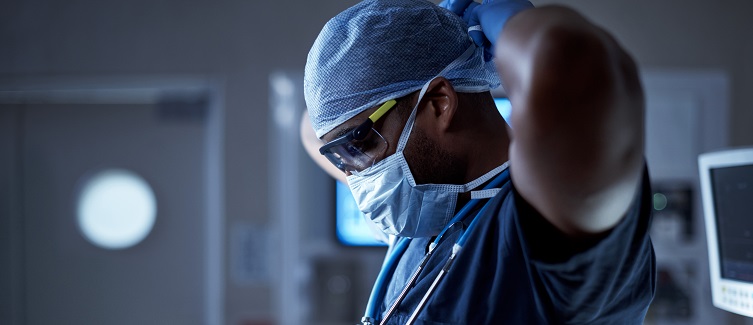When Sean Whelan, MD, asks his wife what he does as a colorectal surgeon, she says, “Don’t you just operate below the belly button?” Dr. Whelan, a colorectal surgeon with the UPMC Division of Colon and Rectal Surgery and vice chair of surgery at UPMC St. Margaret, will tell you it’s more complex than that.

Sean Whelan, MD, colorectal surgeon, UPMC Division of Colon and Rectal Surgery; vice chair of surgery, UPMC St. Margaret
Colorectal surgeons, or proctologists, are specialists who focus on issues in the lower digestive tract. They are not to be confused with gastroenterologists. Both treat some of the same conditions and perform some of the same procedures — colonoscopies, for example. But colorectal surgeons generally don’t treat stomach, pancreas, or liver disease.
“Colorectal surgeons are fully trained in general surgery with advanced fellowship training in benign and malignant diseases of the colon, rectum, and anus,” adds Dr. Whelan.
Never Miss a Beat!
Subscribe to Our HealthBeat Newsletter!
Thank you for subscribing!
You can now select the specific newsletters you'd like to receive.
You are already subscribed.
Subscribe to more newsletters in our email preference center.
Sorry, an error occurred. Please try again later.
Get Healthy Tips Sent to Your Phone!
Reasons to See a Colorectal Surgeon
Common conditions that may require you to see a colorectal surgeon include:
- Colorectal cancer (cancer in the colon, rectum, and anus).
- Diverticular disease.
- Fecal incontinence.
- Fistula.
- Hemorrhoids.
- Inflammatory bowel disease.
What a Colorectal Surgeon Does
If you’re experiencing mild gastrointestinal symptoms, Dr. Whelan may advise a change in diet. He recommends patients eat a balanced diet and take a fiber supplement that:
- Has no added sugar.
- Has water-holding capacity.
- Is nonfermenting.
“The balanced diet that your mom taught you about, with good sources of protein and a variety of macronutrients, is healthy for the colon,” advises Dr. Whelan.
If your case is more severe, you may need to take medicines. When these solutions don’t work, Dr. Whelan may recommend surgery to repair or remove trouble spots. He also performs cancer screenings.
A Common Colon Condition: Diverticular Disease
“One theory for the development of diverticular disease is that low-fiber stools cause increased pressure in the colon,” explains Dr. Whelan. “That increased pressure causes herniation of the colon lining through the colon wall to create these little bubbles or outpouchings called diverticula.”
According to Dr. Whelan, 60% percent of Americans will have some diverticula by age 60. The presence of diverticula is also known as diverticulosis.
“Having diverticulosis doesn’t necessarily mean there is a problem,” says Dr. Whelan. But when diverticula become inflamed or infected, diverticulitis develops.
“We used to think that about 20% of diverticulosis cases would develop diverticulitis, but more recent data suggest it’s only about 5% or less.”
How Do You Know If You Have Diverticulitis?
As you age, the risk of developing diverticulitis increases — more often in women. Younger patients tend to be male.
Other risk factors include:
- Family history.
- Low-fiber and high-fat diet.
- Obesity.
- Smoking.
If you have severe abdominal pain on the left side of the belly, Dr. Whelan suggests a visit to your primary care provider. Blood work or a CT scan also may be needed to diagnose this condition.
Uncomplicated cases of diverticulitis, meaning there’s no inflammation or another problem, can be treated without surgery. Complicated cases need surgical treatment.
Editor's Note: This article was originally published on , and was last reviewed on .
About UPMC
Headquartered in Pittsburgh, UPMC is a world-renowned health care provider and insurer. We operate 40 hospitals and 800 doctors’ offices and outpatient centers, with locations throughout Pennsylvania, Maryland, New York, West Virginia, and internationally. We employ 4,900 physicians, and we are leaders in clinical care, groundbreaking research, and treatment breakthroughs. U.S. News & World Report consistently ranks UPMC Presbyterian Shadyside as one of the nation’s best hospitals in many specialties and ranks UPMC Children’s Hospital of Pittsburgh on its Honor Roll of America’s Best Children’s Hospitals. We are dedicated to providing Life Changing Medicine to our communities.
